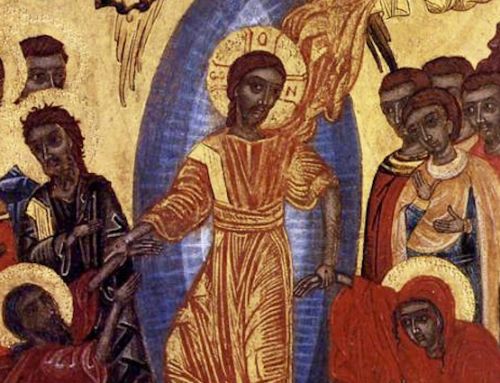“I swear I shall never again achieve this verve and Cellinian impetuosity nor such variety of ideas,” Hector Berlioz effused about his opera, Benvenuto Cellini, based on the memoirs of the eponymous Renaissance artist who fashioned the great statue of Perseus cutting off the head of Medusa. Premiered in 1838, the opera was a failure, and for more than 100 years after the composer’s death it lay unperformed, until revived and recorded by the British conductor, Sir Colin Davis, in 1972. The rousing music of the Carnival scene of Act I, which can be heard below, was later reused by Berlioz as the central section of his Roman Carnival Overture, which was a huge success for the composer.
Libretto (from the French)
THE BOATERS: Come, come, people of Rome
come and hear something new.
THE PEOPLE: Ah, ah! Bravo! Bravo! Bravo! Bravo!
THE BOATERS: Come, come, see the clever man
he will go up on the trestle!
THE PEOPLE: Ah, ah! Bravo! Bravo! Bravo! Bravo!
THE BOATERS: Come, come, people of Rome
come and hear something new.
Come, come, see the clever man
he will climb on the trestle.
PEOPLE: But already the crowd
in the shade and at night
on Rome runs
joy and noise.
And love, drunkenness
in the city on fire
hunt sadness
hearts and eyes.
THE BOATERS: Come, people of Rome
at the new opera.
PEOPLE: Ah! Sound trumpets
sound, musettes
ring, cheerful tambourines.
THE BOATERS: Come, come, see the clever man
he will climb on the trestle.
THE PEOPLE: Blow, trumpets
sound, musettes
ring, cheerful tambourines.
THE BOATERS: Come on, harlequins,
doctors
and pasquins!
PEOPLE: Ah! Long live the joy
that we drown it!
Let’s drink, sing, dance.
THE BOATERS: Black masks, round bellies
come and see the buffoons.
PEOPLE: Ah! The carnival
is a big ball
where, kings and beggars
all are happy.
TERESA: Ah! The carnival
is a big ball
where, kings and beggars
all are happy.
THE BOATERS: Without us the party is incomplete
gentlemen, do not go away
stay, stay, the stuffing is ready
she is worthy of mardi gras.
Come on all!
DANCERS AND PART OF THE PEOPLE:
Cursed talker, old trumpet
your jeers do not try
on your trestle, screaming at the top of your head
for us the dance has more appas.
BOATERS: Go, run
doctors and pasquins
go, run!
Ah! Cursed dancers!
THE PEOPLE: Love and drunkenness
hunt sadness
the carnival
is a big ball.
The Imaginative Conservative applies the principle of appreciation to the discussion of culture and politics—we approach dialogue with magnanimity rather than with mere civility. Will you help us remain a refreshing oasis in the increasingly contentious arena of modern discourse? Please consider donating now.
The featured image is a detail from “The Burial of the Sardine” (1812-1819), by Francisco Goya, courtesy of Wikipedia.








Leave A Comment